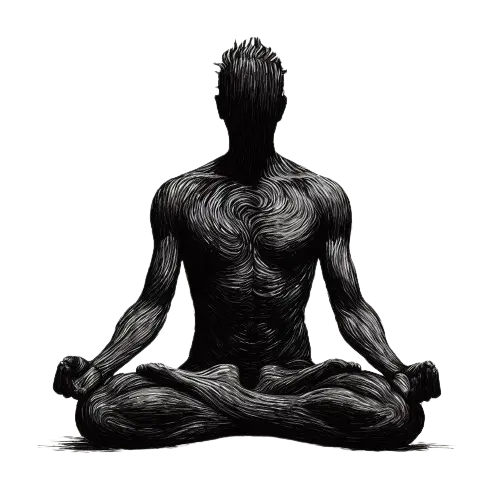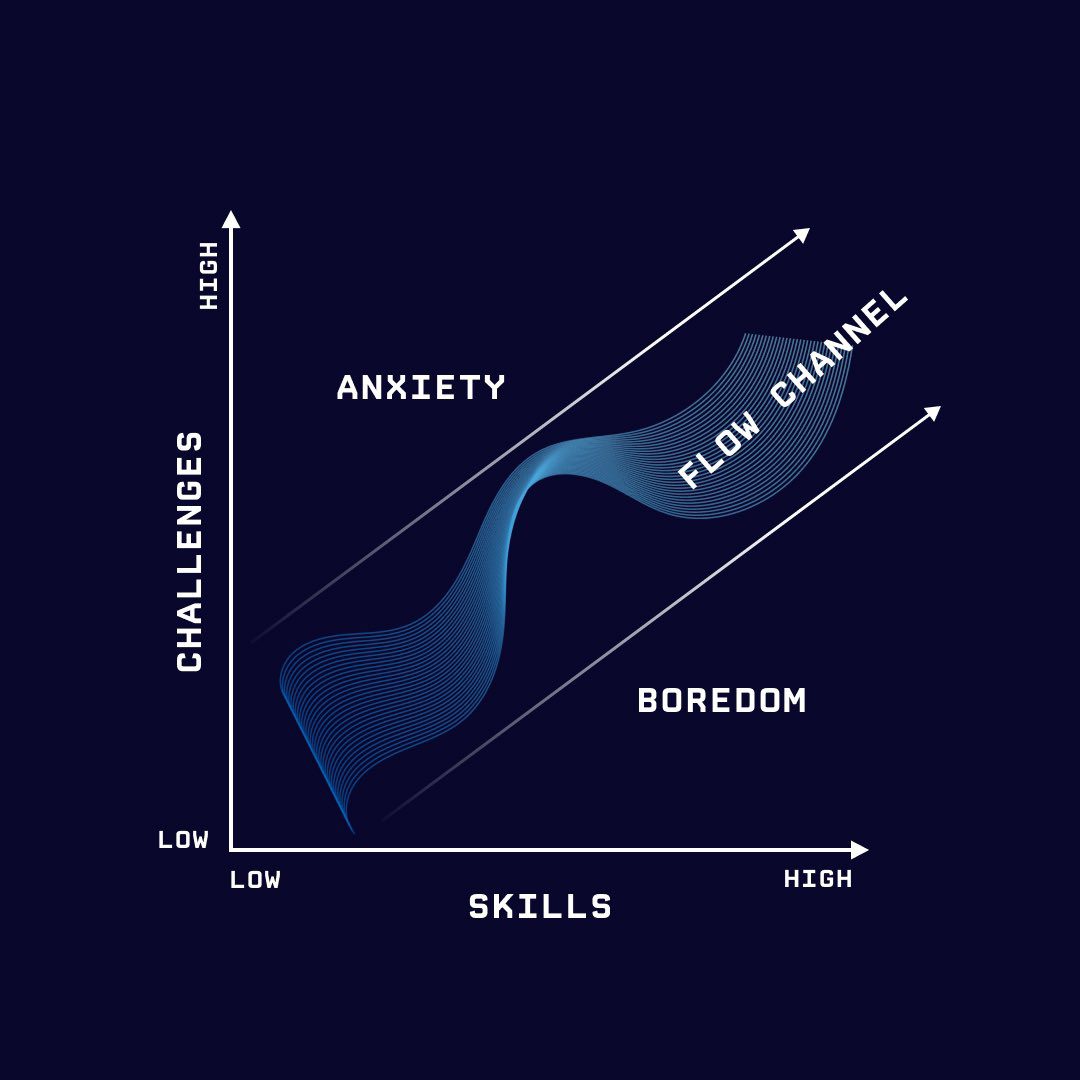

Inner Dialogue : How to Fix your Inner Critic
BY ACHRAF
What is inner monologue ?
Our inner voice is a companion that stays with us all the time & everywhere.
The chatter box or the inner monologue that's on repeat inside our head that's sometimes judging us or other people.
This voice can either be an enemy that does it's best to keep you far from your goals and aspirations in life, or serve as an ally that pushes you to expand and grow as a person.
This article will guide you on how to develop the right perspective to befriend that inner voice.
The Ego
The ego tend to keep us fixed to our sense of self.
For safety reasons and because of the sense of meaning it provides, but also from an evolutionary perspective as being part of a social group and adhering to its rules could enhance survival.
our inner critic might have evolved as a way to internalize these norms, providing an internal guide to behaviors that promote safety and cooperation within the group, as it also equips us with the ability to reflect on our actions.
Try to imagine your internal voice in a human form, and associate this physical reincarnation with a certain emotion. If this voice was a real person, would you enjoy hanging with them ? would you be their friend ? are they the type to support you and care for you, or the type to hurt you and keep you down ?
There is where mindfulness comes into play.
There are two ways to enter a mindful state : Meditation or Flow State
Meditation
What is Meditation ?
Meditation is a technique for training your brain to be mindful and for learning about yourself.
What's "mindful"? At the most basic level it's just paying attention to what's going on right now. That right now part is really important. If you're doing the dishes your mind is focused on dishes and water and soap and the sensations of these things. It's not planning lunch or wondering about the person you met at the hall or the laundry that you still have to do. This is an oversimplified explanation of mindfulness that I hope is easy to grasp.
The next level of mindfulness is getting your brain to pay attention to itself, to your thoughts and feelings. You pay attention during meditation so that when you're out in the world you recognize patterns, say anger or anxiety, and because you see them coming, you have the opportunity to handle them differently and have a different reaction that's more gentle, calm and strong.
Which brings up the autopilot. Normally you go through life and something happens that makes you question your self worth or your ability in yourself.
That moment is usually a momentary period, it's a brief flash and then gone. The problem is that the autopilot, your untrained mind and instincts and animal behavior, they don't let it go. The autopilot grabs the issue and overfixate on it and and create a story of how you are not good enough or you are somehow less capable than other people and blah blah blah.
But meditation trains you to recognize the autopilot which gives you opportunity to step in and choose a different course of action. It's in a way liberating as it helps you exit the auto-pilot of inner monologue and be more present in your daily life. This alliviates problems such as overthinking and anxiety
"Look past your thoughts, so you may drink the pure nectar of This Moment.” — Rumi
Flow State
What is self Flow State ?
A Hungarian psychologist, Mihály Csíkszentmihályi wrote about it and is sometimes called the "inventor" of the terminology. In his explanation it is a state, where you spend a certain time doing something that you are passionate about and have the right amount of difficulty, which allows you to enter a state, in which you are experiencing and acting without any disturbing thought and doubt and you sort of become one with the act itself.
It's a state of consciousness where we feel our best and perform our best. More specifically, it refers to those moments of rapt attention and total absorption. You are so focused at the task at hand, everything else just seems to dissapear including thoughts, internal dialogue, inner critic, as action and awareness starts to merge, which causes your sense of self to dissapear. You become one with what you are doing.
It sounds magical and fantasy like, but if you've experienced this even for a short moment, you know it's the real deal.
Now the amazing thing about flow state is that we do not completely understand it's effects, which explains why there are many studies going on right now about it. A research group in the US tested a combination of talk therapy and surfing and the results were substantial. They discovered that surfing twice a week combined with a talk therapy after each surfing session was enough to significantly reduce or completely remove ptsd symptoms.
you might tell me okay I don't have ptsd though, how does flow state relate to my overthinking or inner critic ?
From my experience with flow state, I realized that once you are in the zone, even your inner voice will dissapear once you reach a certain level of being in that state. It's similar to daydreaming combined with the act of doing.
Here is a graph to demonstrate how flow state looks visually

Image credit: VisualTheory via Twitter
You want to sit in the middle of the flow state channel as much as possible.
I find that the easiest way to start diving more into this state is through hobbies you enjoy. Pick some sort of hobby or activity that requires total concentration like dancing, martial-arts, instruments playing or drawing...
This approach is similar zen-meditation that requires physical effort to harmonize the mind turning it into a tool that assist us rather than work against us.
Be gentle to yourself
Treating yourself like a friend involves practicing self-compassion. Understand that everyone makes mistakes and faces challenges, and it's okay. Offer yourself the same kindness you would offer a friend.
This process involves cultivating a compassionate inner dialogue that contrasts sharply with the critical self-talk often experienced during difficult moments. Instead of berating oneself for mistakes, setbacks, or emotional struggles, practicing self-compassion intentionally offering ourselves the same kindness we would extend to a dear friend facing a similar challenge. This internal shift involves speaking to oneself in a gentle and supportive manner, acknowledging the pain without judgment, and expressing understanding for the difficulties faced. Rather than dwelling on self-blame or harsh criticism, individuals envelop themselves in a comforting embrace of self-love.
This mindset creates a nurturing environment where personal pain is met with empathy, allowing for emotional healing and a sense of reassurance. By treating oneself with warmth and love, we foster resilience, self-acceptance, and a more positive relationship with our own inner experiences.
The most important part is being aware that your inner voice is a mechanism meant to protect you and keep you out from danger. Befriending the voice in our head takes a bit of time and practice.
In conclusion, understanding and befriending our inner voice is a transformative journey that requires patience, mindfulness, and self-compassion. Embracing activities that bring us joy and total concentration, such as hobbies, can be a gateway to the elusive state of flow, where the chatter of the inner monologue fades away, leaving room for unparalleled focus and productivity.
As we navigate this exploration, it is crucial to remember that our inner voice, though at times critical, is fundamentally a mechanism designed to protect us. Cultivating a compassionate inner dialogue, akin to the kindness we extend to dear friends facing challenges, can pave the way for resilience, self-acceptance, and a more positive relationship with our own inner experiences.
In this endeavor, start small, prioritize consistency over intensity, and treat yourself with the same warmth and love you would offer a friend. By doing so, you are embarking on a path toward greater self-awareness, personal growth, and a harmonious coexistence with the ever-present companion within you.
©2024 Elevated Voyage. All rights reserved.